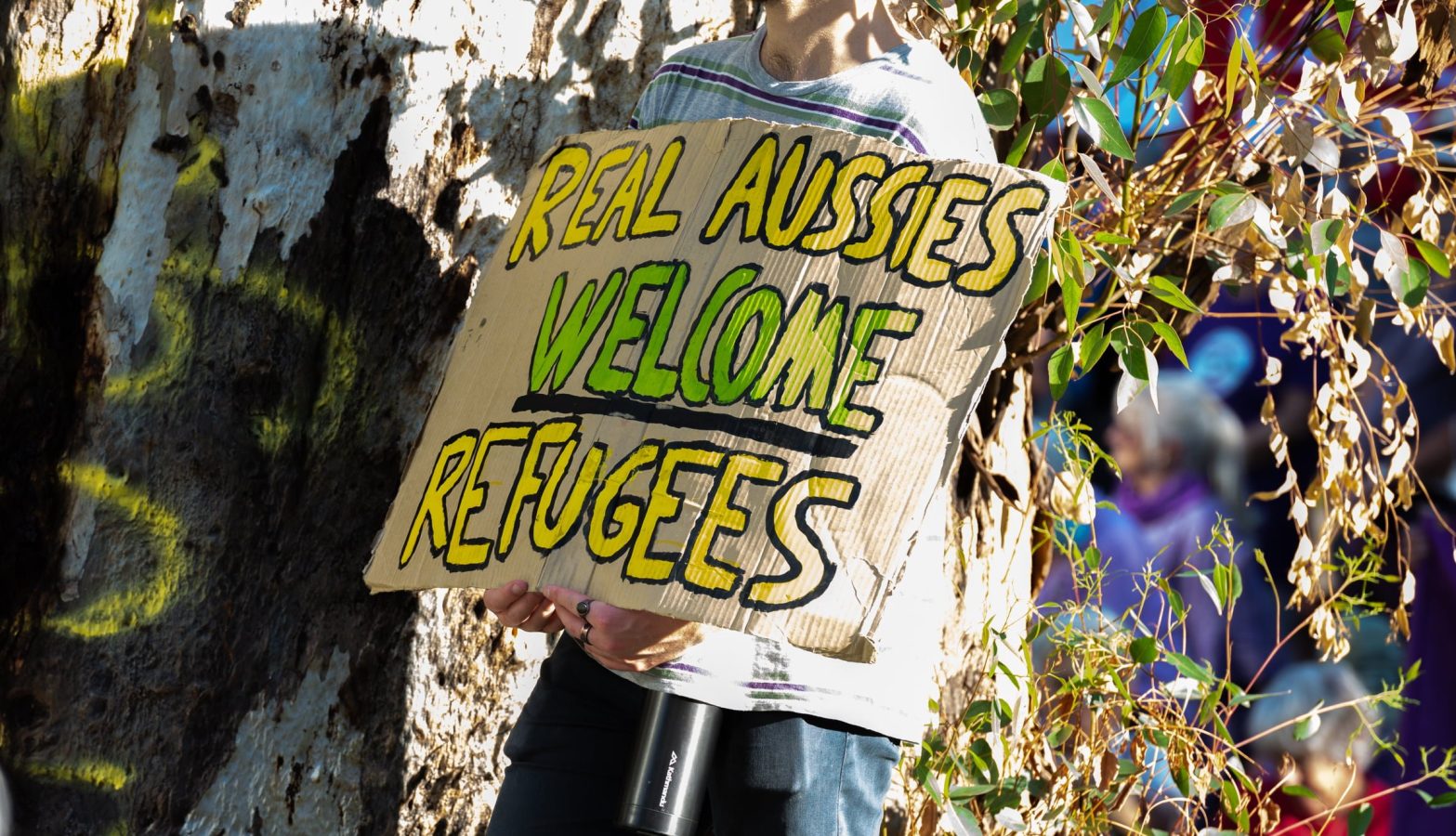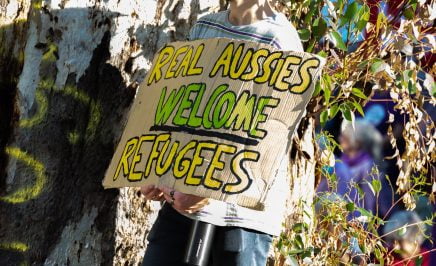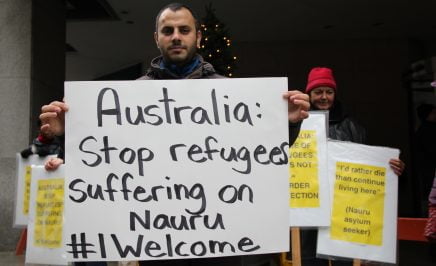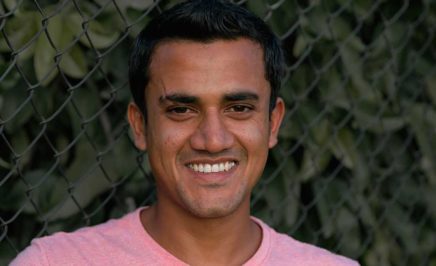Zaki Haidari is a refugee from Afghanistan and a Refugee Rights Campaigner for Amnesty International Australia.
Zaki Haidari fled his home in Afghanistan in 2011, after his family was accused of helping foreign forces by the Taliban. Facing death threats, he left his family behind and became a refugee.
After a long and dangerous journey looking for a safe country to call home, he finally made it to Australia; but he was not welcomed. Australia’s cruel refugee policy meant that for years he lived in limbo. Unable to become a permanent resident, living on temporary visas, he was unable to bring his family to Australia with him. Read Zaki’s full story and the good news about reuniting with his family here.
On the 22nd anniversary of the Tampa Affair, Zaki shares his thoughts on the Howard Government policy to stop the boats and the legacy of ongoing mistreatment and punishment of people seeking asylum.
Australia is one of the key resettlement countries for refugees, it has a history of welcoming refugees and providing them with an opportunity to build a new life. While we welcome the recent announcement of increasing the humanitarian intake to 20,000 per year, we still remain gravely concerned for the human right abuses suffered by people seeking asylum both in Australia and warehoused on PNG. People seeking asylum are often deprived of their basic human rights including rights to work and territory education.
The Australian government has maintained a policy of punishing those who are fleeing persecution and discrimination, arriving by boat, trying to find safety and freedom. This policy has pushed back people seeking asylum from our shores to where they departed from, imprisoned them indefinitely both in Australia and to offshore detention facilities.
How is it acceptable for Australians to witness the human rights abuses of those who came to us seeking protection on our shores, how it has been acceptable to let politicians punish the most vulnerable in our society?
The mistreatment and punishment of people seeking asylum started 22 years ago during the government of then Prime Minister John Howard. He refused to act with kindness and humanity to save the lives of the 433 people seeking asylum, they were mainly Hazara asylum seekers from Afghanistan, who fled persecution from the Taliban (The Tampa Affair).
Luckily they survived, but with their survival the Australian offshore detention facilities were born for the first time in 2001. They were transferred to Nauru and kept in horrible conditions in the detention centres while their applications for refugee status were processed. The conditions of the facilities on Nauru were dire, designed to punish people seeking asylum, a number of them couldn’t resist the conditions and chose to go back to Afghanistan and face persecutions and discrimination.
Beyond those rescued, the Tampa crisis has changed Australia’s response to the global refugee crisis. Australian politicians have removed humanity and kindness from the refugee conversion and responded to the humanitarian crises instead as a national security risk. Ever since, Australia has been weaponising, demonising and marginalising asylum seekers to manipulate the community and remain in power, as we have seen in past election campaigns.
As someone who has lived under these harsh policies and kept fighting for justice since my arrival, it breaks my heart to know that we still have about 75 people trapped in PNG, as well as thousands of people living in the community on bridging visas with limited or no rights to study and work.
How far have we come since the Tampa Affair? The recent scandals exposing the hundreds of millions of dollars wasted to shore up a corrupt offshore detention regime gives some indication. But it should not take newspaper articles about corruption to shock people about the realities behind these policies.
The legacy of Tampa has been one of abuse and cruelty. For over 20 years refugee policies have punished thousands of women, children and men, refugees and people seeking asylum and their loved ones. It has taken many lives, kept families apart for over a decade, and despite no one being taken offshore since 2014, they are still destroying people’s lives and their future.
I’m happy with recent changes, converting the 19,000 TPV/SHEV visa holders to permanent visas (RoS). It gives people like me hope that change will happen but unfortunately it still needs time and determination to keep fighting for justice.
Today, as we mark the 22nd anniversary of the Tampa Affair, I would like to remind us to keep fighting for the victims of these harsh and inhumane policies. We need to keep fighting for the freedom of those trapped in PNG, as well as for justice and for the basic human rights of people seeking asylum who are still trapped in limbo in Australia.
We need to keep advocating for a systemic change to end the harsh treatment of people seeking asylum so no one in the future should suffer the way asylum seekers have been suffering for the past 22 years. We need to change the conversation back to humanity, love and care for those who are in need of protection.
What we can do to learn from the Tampa Affair
Australia can, and must, do more so that those at grave risk and seeking safety are provided protection.
The Australian government should:
- Continue to increase the humanitarian intake, to at least the 27,000, as promised by the government
- Bring those remaining in limbo in PNG to Australia while a permanent solution is found
- Ensure those who have been transferred to Australia, from offshore, are granted full rights, including the right to work and study, while a permanent solution is found
- Permanently close the facilities on Nauru
- Reform the community sponsorship program, making places additional, so that people across Australia can welcome people seeking safety into their community
Together, we can make a difference by putting pressure on the Australian government to provide safe passage to people seeking asylum. Please take urgent action now.
Amnesty works to support refugees and asylum seekers, including campaigning for the Australian government to end offshore detention and implement solutions that help more people find a safe place to live. This crisis highlights how our work is challenging injustice and could save lives. Learn more about our Refugee Rights campaign here.





